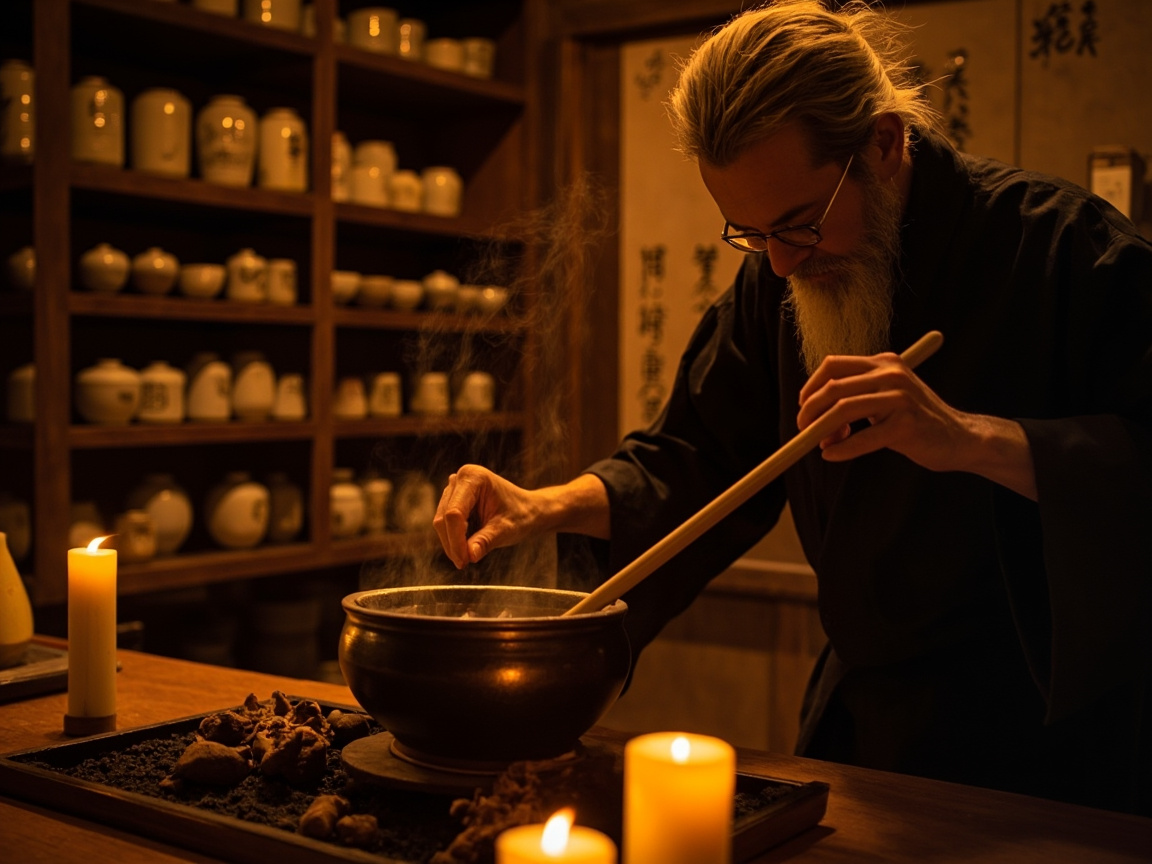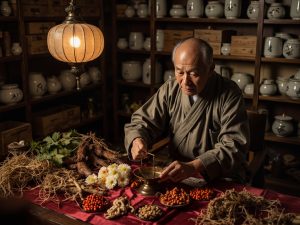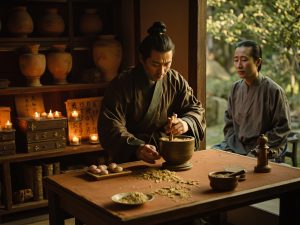Table of Contents
ToggleXuanfu Daizheshi Tang – Nan Kaiyang
Author: Nan Kaiyang Editor: Gu Yuxi Translator: Gu Yuxi
Original Text:
Clause 161 of Shanghan Lun : For cold damage after sweating, or vomiting, or purging, upon resolution, if there is epigastric glomus and hardness, and persistent belching; Xuanfu Daizheshi Tang (Inula and Hematite Decoction) is indicated.
Pathogenesis:
Stomach deficiency with phlegm obstruction and rebellious qi, where liver qi ascends and invades.
Location of Disease:
The middle jiao (stomach system) and the lower jiao (liver system).
A large dose of Hematite (Daizheshi) descends the rebellious qi in the stomach and also enters the liver channel; a large dose directly reaches the lower jiao. Zhang Zhongjing’s use of a lighter dose of Hematite is not merely to calm rebellious qi. When combined with Inula Flower (Xuanfuhua), Inula is light and acrid-dispersing, while Hematite is heavy and bitter-descending. Their combination allows for both descending and dispersing, restoring the ascending and descending functions, thereby resolving glomus and belching.
Commentary:
Zhang Xichun, in Yi Xue Zhong Zhong Can Xi Lu (Records of Medicine Combining Chinese and Western Approaches), stated: “Hematite is cool in nature and heavy in quality, most adept at calming the liver, descending the stomach, and settling surging qi. Using ginseng and hematite together, the heavy and sinking nature of hematite is used to transform the ascending and floating [qi], allowing the reinforcing power of ginseng to reach the Yongquan [acupuncture point on the sole of the foot].” This indicates that Zhang Xichun heavily used Hematite to treat conditions arising from disharmony of the stomach with ascending liver qi.
Furthermore, Wu Jutong, in Wen Bing Tiao Bian (Treatise on Warm Diseases), stated: “Treating the middle jiao is like a balance, it is unstable without being level; treating the lower jiao is like a weight, it does not sink without being heavy.” Based on the above conclusions, it can be inferred that an excessive dosage of Hematite can easily lead to the medicine overshooting the disease location, directly reaching the lower jiao to suppress liver qi. Therefore, a large quantity is added when treating symptoms such as hiccupping and vomiting due to ascending liver qi. However, when treating stomach yang deficiency cold with fluid retention and rebellious qi, the Hematite in Xuanfu Daizheshi Tang should be light, not heavy. According to Liu Duzhou’s prescribing experience, a light dose is 6-9g, while a heavy dose is around 25-30g. Symptoms would include persistent belching, chest oppression, glomus and fullness, vomiting, and other signs of liver-stomach disharmony.
Disclaimer:
The experiences and insights shared above represent the author’s personal usage and understanding, and are provided for reference only as part of academic exchange. Please do not blindly replicate or apply them; any consequences arising from such actions are solely your responsibility. As individual constitutions vary, medication should be tailored accordingly. It is advisable to use such treatments under the guidance of a qualified physician. If you have additional experiences to share, comments and submissions are welcome.
If you appreciate my article, please give it a like.
If you are a generous and affluent individual, please consider making a donation!
Your recognition is my greatest motivation to continue writing—thank you very much!
USD Donation Button —
A RMB donation button is available below.
 微信赞赏
微信赞赏 支付宝赞赏
支付宝赞赏




